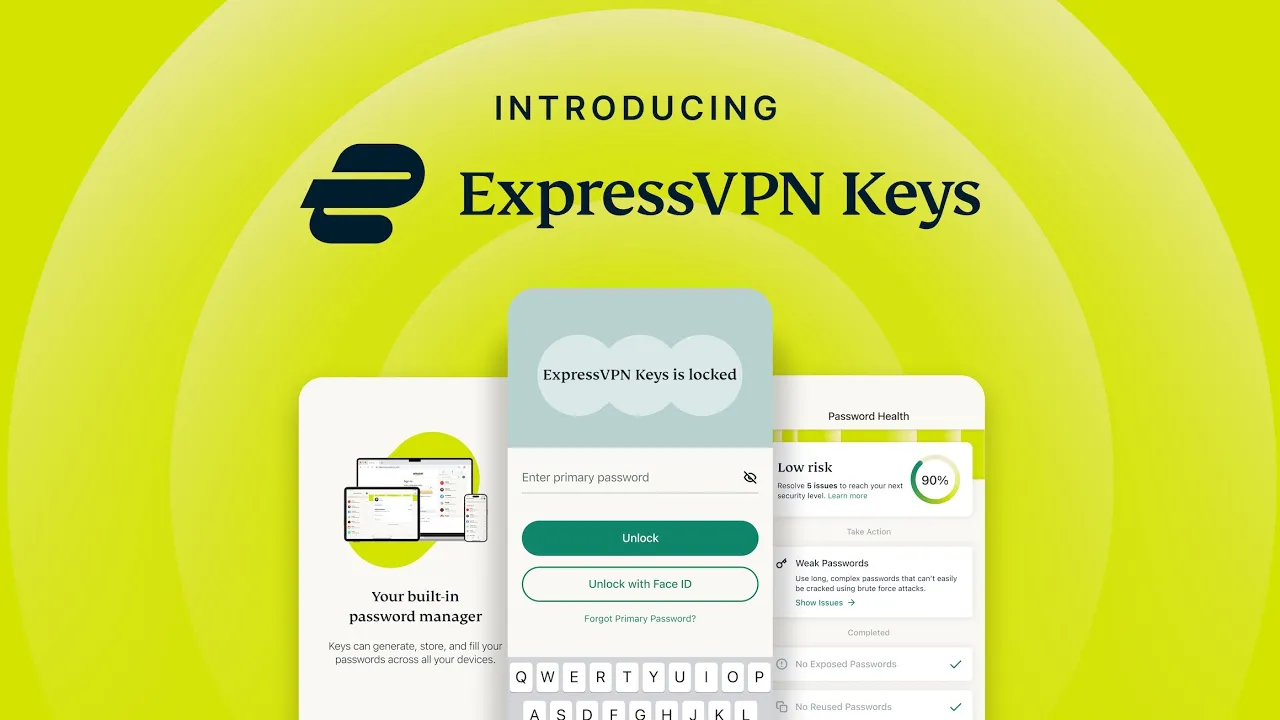ExpressVPN vs Other VPNs: Who Wins the Privacy Battle in 2025?

In 2025, online privacy is no longer optional—it’s essential. With cyber threats evolving, data surveillance increasing, and third-party tracking now a norm, Virtual Private Networks (VPNs) have become a critical tool for protecting your digital life. But with so many options out there, one question stands out: Who truly wins the privacy battle—ExpressVPN or other VPNs?
Let’s dive deep into how ExpressVPN stacks up against the competition in the areas that matter most: encryption, logging policies, technology, and transparency.
1. Encryption and Security Protocols
When it comes to encryption, ExpressVPN uses AES-256-bit encryption, which is considered the gold standard globally. This is the same level of protection used by banks, militaries, and government agencies. Most top-tier VPNs like NordVPN, Surfshark, and CyberGhost also offer AES-256, but ExpressVPN goes a step further with its proprietary Lightway protocol.
Unlike traditional VPN protocols like OpenVPN or IKEv2, Lightway is designed for faster speeds and greater reliability without compromising security. It connects almost instantly, works seamlessly on mobile, and is open-source — a key trust factor for privacy advocates.
2. No-Logs Policy: What’s the Truth?
All VPNs claim to have a no-logs policy, but not all of them can back it up. This is where ExpressVPN truly stands out. Its no-logs policy has been independently audited multiple times by respected cybersecurity firms like PwC and Cure53. In addition, ExpressVPN’s servers are RAM-only, which means they can’t physically store any data — everything is wiped with every reboot.
While some competitors like NordVPN and ProtonVPN have also undergone audits, ExpressVPN was one of the first VPNs in the industry to implement and prove this kind of strict privacy protection. Cheaper or free VPNs often keep connection logs or user data, which could be a serious risk in the wrong hands.
3. Transparency and Independent Audits
Trust isn’t just about what a VPN says—it’s about what they show. In 2025, ExpressVPN continues to lead the industry in transparency, regularly publishing audit results and making its source code available for key components. This kind of openness is crucial for cybersecurity experts and privacy-conscious users alike.
Some other VPNs do conduct audits, but not with the same frequency or depth. Free or lesser-known VPNs rarely disclose anything publicly, leaving users in the dark.
4. Jurisdiction Matters
ExpressVPN is based in the British Virgin Islands, a location with no data retention laws. This is a huge advantage over VPNs based in countries within the 5 Eyes or 14 Eyes intelligence-sharing alliances, where user data could be requested by authorities. Many budget VPNs are headquartered in less secure jurisdictions or don't disclose their ownership at all.
5. Privacy-Focused Features
In 2025, ExpressVPN continues to innovate in privacy protection with features like:
-
Kill Switch (Network Lock): Stops internet traffic if the VPN disconnects.
-
Private DNS on every server: Prevents DNS leaks.
-
Split tunneling: Choose which apps use the VPN and which don’t.
Other VPNs do offer similar tools, but ExpressVPN’s implementation is smoother, more reliable, and user-friendly — especially for beginners who want strong protection without complicated setup.
6. Price vs Privacy: Is It Worth It?
While ExpressVPN is often slightly more expensive than other providers, the value for money is undeniable when privacy is your top concern. And the good news? You can easily cut down the cost by using an ExpressVPN Discount Code, which offers significant savings on long-term plans.
If you’re on a tight budget, other VPNs might look attractive, but remember: when a VPN is cheap or free, you may be paying with your privacy. Many free VPNs collect and sell user data — exactly what you’re trying to avoid.
Using an ExpressVPN Discount Code makes it more affordable while giving you access to best-in-class privacy features, fast speeds, and unmatched reliability.
Final Verdict: Who Wins the Privacy Battle?
While several VPNs perform well in 2025, ExpressVPN remains the undisputed leader when it comes to privacy. With independently audited policies, advanced encryption, RAM-only servers, and complete transparency, it continues to set the standard for what a secure VPN should be.
If your priority is to stay anonymous, avoid surveillance, and truly protect your data, the choice is clear: ExpressVPN wins the privacy battle.
- Art
- Causes
- Crafts
- Dance
- Drinks
- Film
- Fitness
- Food
- Jeux
- Gardening
- Health
- Domicile
- Literature
- Music
- Networking
- Autre
- Party
- Religion
- Shopping
- Sports
- Theater
- Wellness
- Script
- App
